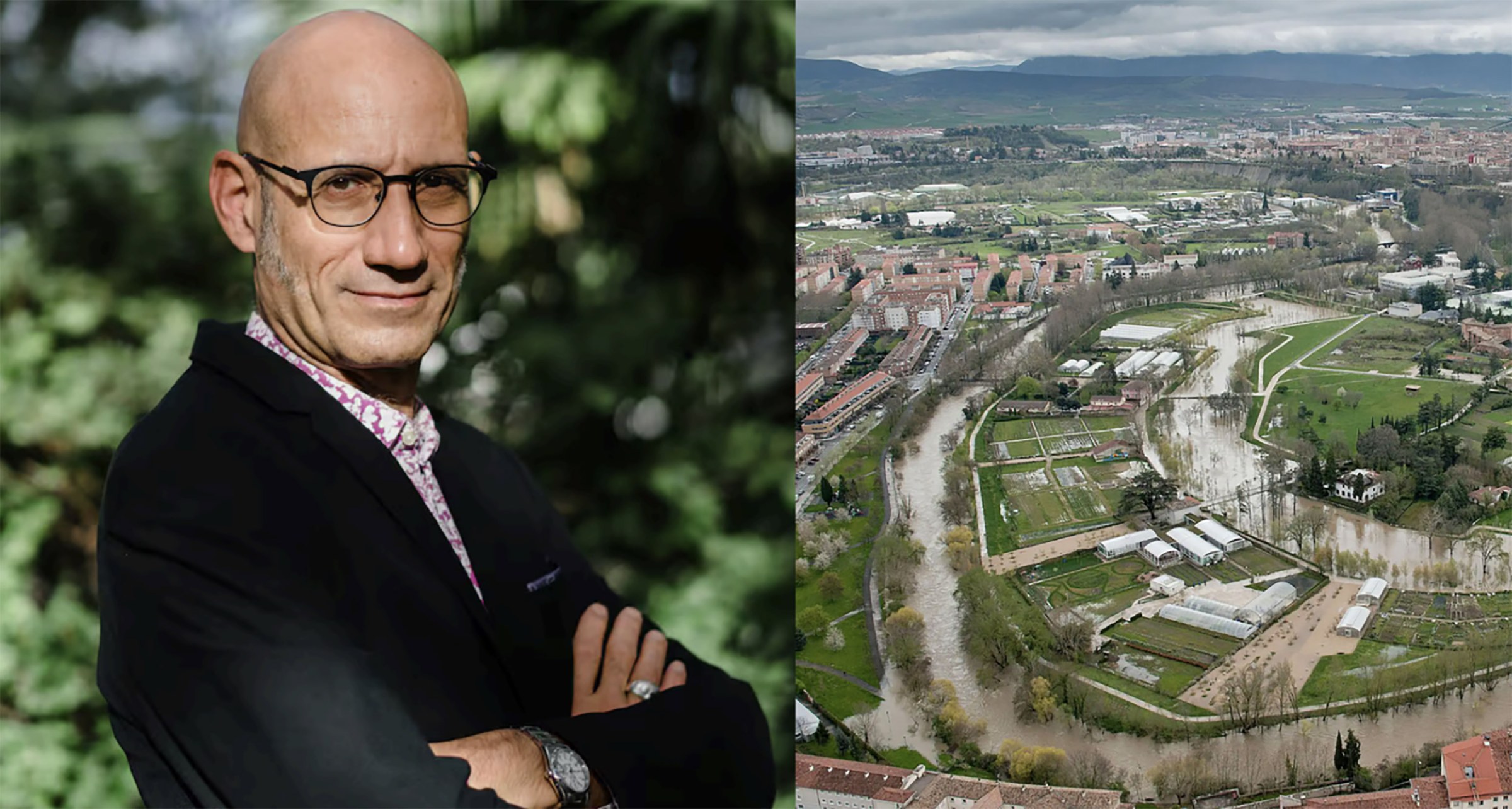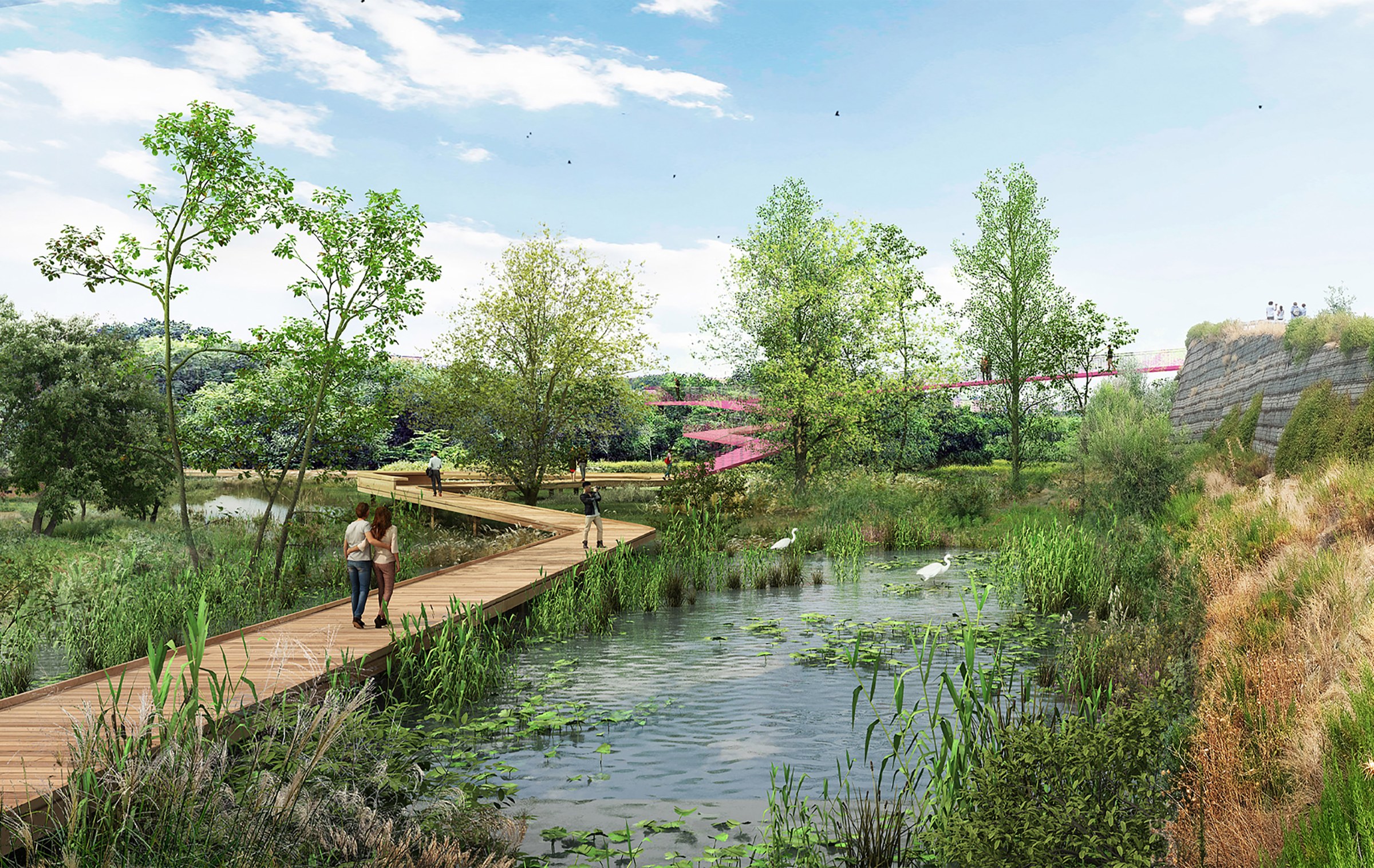Dean Iñaki Alday Discusses Sustainable Flood Management with El País

April 4, 2025
BY Isabel Berman
Iñaki Alday, the Dean of Tulane School Architecture and Built Environment and a pioneer in landscape architecture, was interviewed by El País, sharing his expert insights on sustainable urban planning and flood management. The discussion centered on the necessity of rethinking our approach to river management and urban design in the face of climate change. Alday emphasized the importance of allowing rivers to overflow naturally without causing harm to communities, a concept proven effective in various Spanish cities and abroad. The interview explored innovative solutions such as the creation of floodplains and renaturalization of riverbeds, stressing a paradigm shift towards integrating natural water cycles into urban landscapes to prevent the devastating impacts of floods.
Here is a section from the interview:
El País: What can be done to prevent flooding?
Alday: We need a paradigm shift and to approach the issue of floods coherently as a country. We should have a national flood plan with set criteria and solutions, which would guide river basin authorities, autonomous communities, municipalities... Learning from other countries.
El País: What would the paradigm shift entail?
Alday: Developing a National Water Program that sets new criteria and makes room for rivers to overflow without causing damage, and yielding the benefits that river overflows generate, such as depositing fertile mud in those overflow areas and recharging the aquifer. We need to delay the water in places where it doesn’t harm us. The water has to circulate more slowly, or even not circulate, because we retain it on slopes, in forests, and prevent it from reaching the cities.
El País: How?
Alday: The Water Park we made in Zaragoza (2008) is an example of creating space for the river at the entrance to the city to cushion the force of the flood. We have to make room for the river in alternative pathways: the Aranzadi Park in Pamplona (2013), which we also designed, creates a path for the river so that when it is at full capacity, instead of overflowing, it finds an alternate channel, irrigates the park, leaves the fertile mud, recharges the aquifer, and does not flood homes.
El País: Should we channel the rivers?
Alday: No. We have to let the rivers do their job: carry the water at a reasonable speed to the sea, while recharging the ground with water. When we see water in a river, there is much more water circulating below. When we concrete the channel, the river below weakens, and the one above becomes stressed. These channeled rivers do not allow us to recover ecological health or groundwater health. When the channel's capacity is exceeded, we don’t know where to send the water, which overflows with great energy and uncontrolled, and we flood catastrophically. This is the main problem with hard systems of channeling water.
El País: Will there be more projects?
Alday: In Barcelona, we are working on the Besòs and Llobregat rivers, and also in some places in Levante. We are trying to eliminate buried streams. In the Mediterranean area, there are many dry rivers that only carry water when it rains. For years, we thought we could make better use of them by piping them. With climate change, we see that these pipes are not sufficient to carry the water, and they move it with such speed and pressure that they break everything around. We have to remove them and recover much wider channels, which make the water circulate more slowly and infiltrate, recharge the groundwater level, and generate ecosystems. This is already starting to be done, but not at the scale and speed it should.
Related
Faculty win international design competition for urban forest
Margarita Jover and Iñaki Alday recently won an international design competition through their practice aldayjover architecture and landscape. The firm’s proposal has been chosen as the winner of the Madrid Metropolitan Forest International Contest, Lot 4 "The Southern River Parks."
